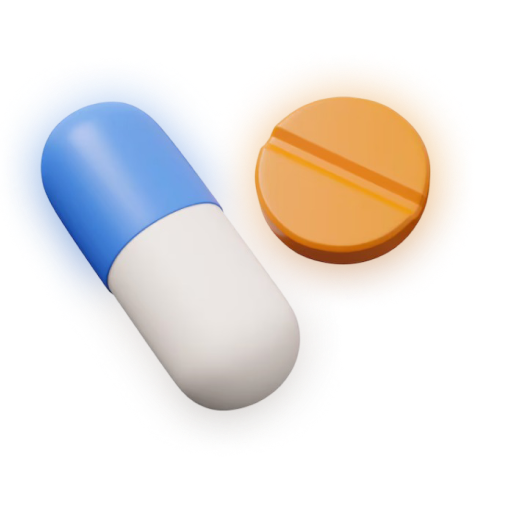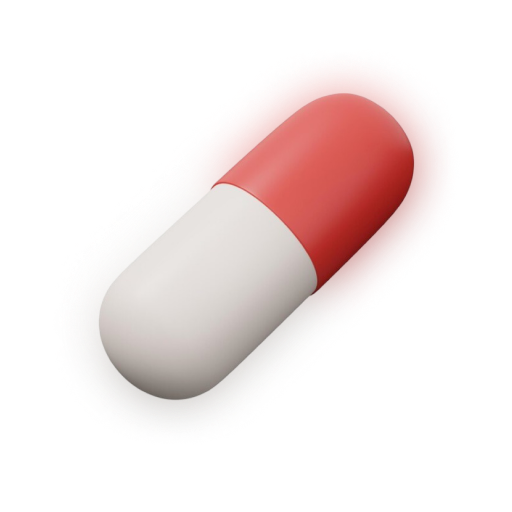Diclofenac- 50 mg , 100 stk.
Anti-inflammatory pain reliever (NSAID)


Description
Generic Name: Diclofenac
Brand Name: Diclac®, Dicloflex®, Voltaren®
Drug Class: NSAID – Nonsteroidal Anti-Inflammatory Drug
This is a prescription medicine, which requires a valid prescription!
Indications
- Rheumatoid arthritis, osteoarthritis, and ankylosing spondylitis
- Acute musculoskeletal pain or injury
- Back pain, joint pain, or dental pain
- Dysmenorrhea (menstrual cramps)
- Gout (acute attacks)
- Postoperative or post-traumatic inflammation

- Inhibits cyclooxygenase enzymes (COX-1 and COX-2)
- Reduces synthesis of prostaglandins
- Provides anti-inflammatory, analgesic, and antipyretic effects
- Form: Oral tablet
- Typical Adult Dose: 50 mg 2–3 times daily (max 150 mg/day)
- Use the lowest effective dose for the shortest duration
- Take with food or milk to minimize gastrointestinal irritation
- Common:
- Nausea, indigestion
- Abdominal pain
- Headache
- Dizziness
- Serious (rare):
- Gastrointestinal ulcer or bleeding
- Elevated liver enzymes or hepatotoxicity
- Cardiovascular events (e.g., heart attack, stroke)
- Kidney impairment
- Hypersensitivity reactions (e.g., rash, asthma exacerbation)
- Known hypersensitivity to diclofenac or other NSAIDs
- History of peptic ulcer or GI bleeding
- Active gastrointestinal ulceration or bleeding
- Severe heart failure
- Severe liver or renal dysfunction
- History of asthma, urticaria, or allergic-type reaction after NSAID use
- Third trimester of pregnancy
Information
Warnings and Precautions
- Increased risk of serious CV thrombotic events (especially with prolonged use)
- Monitor for signs of GI bleeding, liver or kidney dysfunction
- Use with caution in elderly patients and those with comorbid conditions
- Avoid combining with other NSAIDs or corticosteroids
Drug Interactions
- Anticoagulants (e.g., warfarin) → increased bleeding risk
- ACE inhibitors/ARBs → may reduce renal function
- Diuretics → may reduce efficacy
- Lithium or methotrexate → may increase toxicity
- SSRIs → increased risk of GI bleeding
Pregnancy and Lactation
- Pregnancy: Avoid in 3rd trimester; may cause premature closure of ductus arteriosus
- Lactation: Present in breast milk in small amounts; use with caution
Request Now
Direct Enquiries
For any inquiries, please feel free to contact us directly via email at the link below.
pharmacy@doctorworld.eu
PLEASE AVOID SELF-DIAGNOSIS AND SELF-MEDICATION!
Our website content is posted for informational purposes only. It is not intended to be used for primary diagnoses-making and should not replace a consultation with a professional health care provider. If you have any health issues or complaints, please consult your primary physician.
Health care data provided for informational purposes is not an alternative to an in-person physician consultation.